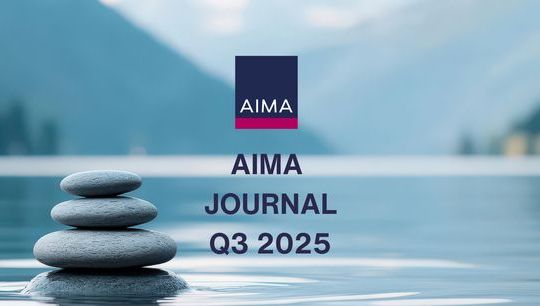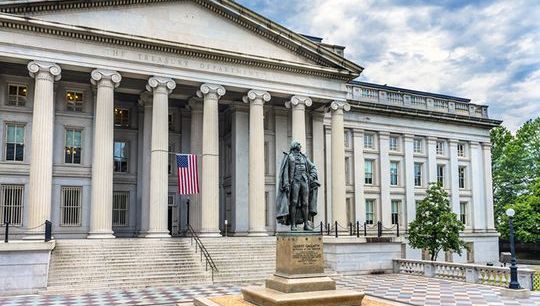The Cayman Islands’ beneficial ownership transparency regime: A new era of transparency and accountability
By Chris Capewell; Julian Ashworth; Philip Dickinson; Anthony Mourginos, Maples Group
Published: 18 November 2024
The Cayman Islands, long known for its robust financial services sector and favourable regulatory environment, has enhanced and improved its existing beneficial ownership regime (the Regime) with the introduction of the Beneficial Ownership Transparency Act (As Revised) (the BOTA).
This legislation, along with its accompanying regulations, marks an evolution y in the realm of beneficial ownership. As the global community intensifies its efforts to combat money laundering, tax evasion, and terrorist financing, the Cayman Islands’ enhanced Regime stands as a testament to its commitment to international standards and aligns with equivalent regimes in other jurisdictions, such as the US Corporate Transparency Act.
This article delves into the intricacies of the Regime and the BOTA, exploring its implications, challenges, and the broader context within which it operates.
The genesis of the Beneficial Ownership Transparency Act
The BOTA was enacted by the Cayman Islands Legislature on 15 December 2023, and came into force on 31 July 2024. The BOTA builds upon the prior Regime by consolidating and enhancing the existing legislative framework, aligning it with evolving international standards and addressing certain gaps or deficiencies identified in the previous Regime.
The introduction of the BOTA is part of a broader global trend towards greater transparency in beneficial ownership. The Financial Action Task Force (FATF), the global standard-setter for anti-money laundering and counter-terrorist financing, has long advocated for the identification and verification of beneficial owners. The European Union’s Fifth Anti-Money Laundering Directive (5AMLD) also mandates the establishment of beneficial ownership registers accessible to competent authorities and certain other persons with a deemed “legitimate interest” due to their role in combating money laundering and terrorist financing. Effective 1 January 2024 the United States also introduced its own Corporate Transparency Act.
The changes made to the Regime are all targeting enhanced transparency and ensuring alignment with evolving international recommendations upon which the Regime was built, emphasising the importance of identifying and verifying true owners and controllers of legal entities and enhancing the Cayman Islands’ reputation as a responsible financial centre.
Summary of key changes
The BOTA introduces several key changes to the Regime, including:
1. New in-scope entities
The prior Regime applied only to companies, limited liability companies (LLCs) and limited liability partnerships (LLPs). The BOTA brings new entities into scope and applies to all ‘legal persons’, which includes companies, LLCs, LLPs, limited partnerships; exempted limited partnerships (ELPs) and foundation companies; and any other legal person that may be prescribed in regulations. Foreign registered entities and certain other categories of legal person are carved out of the new Regime (e.g. certain charities and not-for-profits).
2. New definition of beneficial owner
Under the BOTA, the definition of ‘beneficial owner’ in relation to a legal person is amended to be more aligned with that under the Cayman Islands Anti-Money Laundering Regulations (As Revised). The BOTA definition refers to an individual (i) who ultimately owns or controls (directly or indirectly) 25% per cent or more of the shares, voting rights or partnership interests in the legal person; (ii) who otherwise exercises ultimate effective control over the management of the legal person; or (iii) who is identified as exercising control of the legal person through other means. The analysis involved looking through all non-Cayman Islands entities up to an individual who meets the test, if any. If another Cayman Islands vehicle is identified as part of the analysis, that Cayman Islands vehicle is recorded on the legal person’s beneficial ownership register. Similarly, the trustee is referenced where a trust is identified as a beneficial owner in the analysis.
A person operating solely in the capacity of a ‘professional advisor’ or ‘professional manager’ (both terms defined in the BOTA) will not be considered a beneficial owner.
The BOTA also specifically provides for circumstances in which no registrable beneficial owner can be identified under the definition of beneficial owner. In those circumstances, the BOTA provides that a ‘senior managing official’ should be identified as a contact person.
3. Removal of exemptions and new required particulars
The BOTA removes (or otherwise significantly restricts) the majority of the ‘exemptions’ which previously applied under the Regime in favour of certain ‘alternative routes to compliance’, meaning the legal person would not be required to establish a beneficial ownership register or report its beneficial owners on an ongoing basis, but rather report limited ‘required particulars’.
Under the BOTA, legal persons able to apply an alternate route to compliance include a legal person that is: (a) listed, or is a subsidiary of a listed entity, on the Cayman Islands Stock Exchange (CSX) or an approved stock exchange; (b) licensed under a regulatory law (note this is limited to certain Cayman Islands regulatory laws); (c) a fund registered with the Cayman Islands Monetary Authority under the Private Funds Act (As Revised) or the Mutual Funds Act (As Revised); or (d) otherwise exempted by Cabinet (none currently).
Relevant to the investment funds industry, legal persons under category (c) (registered Cayman Islands mutual or private funds) are permitted to supply the contact details of a service provider licensed or registered under a regulatory law and located within the Cayman Islands that will provide beneficial ownership information to the competent authority on request within 24 hours (or any other time the competent authority may reasonably request).
Note that only subsidiaries of listed entities are recognised as being able to take advantage of any alternative route to compliance. For example, in an investment fund structure, trading subsidiaries or blocker entities would be in-scope and would need to maintain beneficial ownership registers and identify any beneficial owners or (where relevant) a senior managing official on the basis discussed above. In the context of trading subsidiaries or blocker entities that are owned / controlled by the relevant Cayman Islands investment fund, the Regime requires the entity to report that Cayman Islands investment fund as a “reportable legal entity” but does not require the entity to look through that reportable legal entity in identifying registrable beneficial owners in that chain of control or ownership.
Entities falling outside categories (a) – (d) above (or otherwise opting not to apply an alternative route to compliance) are considered ‘in-scope’ of the requirement to establish and maintain a beneficial ownership register and to report the details of their beneficial owners to the competent authority on an ongoing basis. The required particulars to be reported on the legal person’s beneficial ownership register are largely unchanged from the requirements of the Regime prior to the BOTA with two notable exceptions, those being that the legal person must also report (1) the nationality of all beneficial owners; and (2) details of the nature in which the individual or ‘reportable legal entity’ owns or exercises control of the legal person.
Transparency and access to information
One of the most notable aspects of the Regime is the centralised electronic platform, maintained by the competent authority, which houses and, in certain circumstances, permits access to beneficial ownership information. This platform can be accessed by various Cayman Islands authorities, including the Royal Cayman Islands Police Service, the Financial Reporting Authority, and the Cayman Islands Monetary Authority, among others. Additionally, licensed financial institutions and designated non-financial businesses and professions can access the platform for a fee, facilitating customer onboarding and ongoing due diligence.
The BOTA provides that the Cabinet may, subject to resolution in Parliament, make further regulations empowering the competent authority to provide additional organisations access to certain, limited required particulars of registrable beneficial owners. The Cayman Islands Government has indicated that it is currently taking the necessary steps to provide such access to those members of the public who meet a ‘legitimate interest test’. As at the date of this article, draft regulations regarding such access have just been released by the Cayman Islands Government for industry consultation.
Enforcement and penalties
The BOTA imposes administrative penalties and other sanctions for non-compliance, reflecting the seriousness with which the Cayman Islands Government views these obligations. Legal persons that fail to establish or maintain a beneficial ownership register, or that provide false or misleading information, can face fines ranging from CI$5,000 to CI$100,000 (US$6,000 – US$120,000), as well as imprisonment. Persistent offenders may even be struck off the register, resulting in the dissolution of the entity and directors/managers of such legal persons may also be held liable for breaches in certain situations. Cayman Islands Corporate Services Providers (CSPs) also face significant penalties for failing to fulfil their duties under the BOTA. These include fines for not verifying the identity of beneficial owners, not updating the register, or not depositing beneficial ownership information with the competent authority. The imposition of such administrative fines and other penalties, which can accumulate over time, underscores the importance of compliance with these obligations.
Challenges and opportunities
While the implementation of the BOTA represents a significant step forward, it also presents several challenges. Legal Persons and CSPs must navigate the complexities of the new requirements, ensuring that they accurately identify and verify registrable beneficial owners. This is particularly relevant for those Cayman Islands legal persons that were previously “exempt” from, or out of scope of, the prior Regime. The need for ongoing updates to the beneficial ownership register adds an administrative burden, particularly for entities with complex ownership structures.
As has been evidenced in other jurisdictions (e.g. Luxembourg and the United States) the potential for broader access rights to beneficial ownership information raises valid concerns about privacy and data security. Striking the right balance between transparency and confidentiality will be crucial to the Regime’s success.
Despite these challenges, the new Regime also presents opportunities. By enhancing transparency, the Cayman Islands strengthens its position as a reputable financial centre, attracting legitimate business and investment. The Regime also provides an enhanced framework for greater cooperation with international partners in the fight against financial crime.
Conclusion
By consolidating and enhancing the beneficial ownership framework, the BOTA aligns the jurisdiction with international standards and demonstrates the Cayman Islands’ commitment to combating money laundering, tax evasion, and terrorist financing in a manner that is equivalent to other significant jurisdictions, including the United States.








